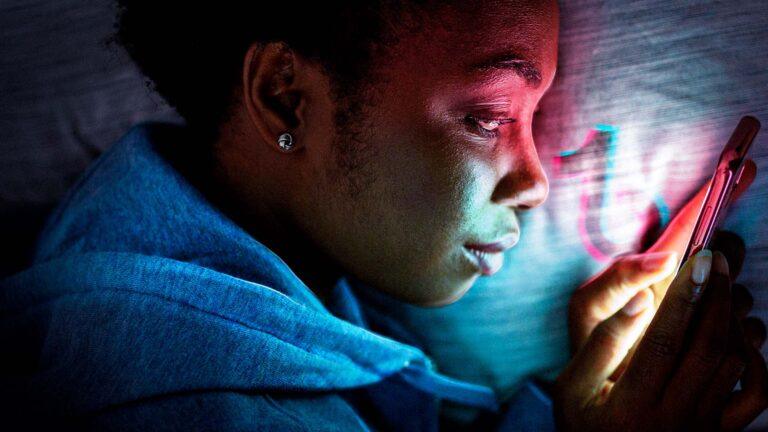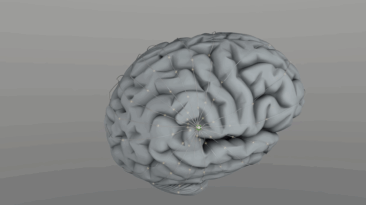You think you’re watching TikTok, but in reality, it’s watching you. Yeah, those cute, fun little videos come at a high price. Your privacy. But now this app is banned permanently. And you might be better off without it. So how is TikTok spying on you? How could watching too many TikToks make you ill? And why banning the app might not solve any issues?
TikTok has taken over phones worldwide. It’s been growing way too big, way too fast. In only four years, over three billion people have downloaded the app. What started as a lip-synching video-sharing service became one of the world’s largest media companies. Everyone in your family is probably scrolling through its videos right now.
Why are your eyes so glued to the screen? Because the site’s algorithm is constantly learning. It’s dedicated to giving you what you want when you want it. Which is right now. You’ve been feeding this beast your private data for years. So what has this monster become? TikTok knows you better than you know yourself. But what do you know about it?
For one, its headquarters are located in Beijing, China. That means over three billion users’ private data belongs to a company subject to the whims of a strict and often totalitarian government. And according to China’s laws, if the government demands to see data, TikTok had better hand it over fast. Your digital life would be in the hands of president for life, Xi Jinping.
There’s no evidence that TikTok is spying on you, so you can take the tape off your camera. But the app does collect information about your phone, your usage patterns and locations. It even uses third-party tracking services. Yeah. A certain foreign government always knows where you are. As far as we know, China hasn’t crossed any of these lines. But India wasn’t taking any chances.
The country banned TikTok and other Chinese apps, claiming that China’s government stole their citizens’ data. Even former U.S. President Trump flirted with banning the social media juggernaut. He chickened out, but what if the U.S. banned TikTok today? Well, your favorite content creators would have to find new gigs fast.
Some creators make hundreds of thousands of dollars per post. Pull the plug, and in just minutes, many of these overnight sensations would lose their fame and fortunes forever. But what about you and your not-so-famous friends? About one third of people on the platform use TikTok as a news source. Cutting people off from this information pipeline could be damaging.
These aren’t just random videos strung together. TikTok has online communities based on sharing knowledge, life hacks and medical advice. These groups and their creators would have to go to another social media platform, or they could disappear from the internet. And that’s not the only way our cultures could change.
Remember, that algorithm is designed to give you that dopamine rush for hours on end. Unless or until a new app fills the gap, people might spend less time on their phones. As you might have guessed, that could actually improve society. In 2021, neurologists noted an uptick in the number of teenage girls experiencing symptoms of Tourette’s syndrome, such as making sounds or movements they couldn’t easily control. But they didn’t have the disease.
So what caused their new behaviors? They had a sociogenic illness. This phenomenon occurs when people in certain social groups exhibit bizarre symptoms without any medical explanation. The girls were watching so many videos on Tourette’s syndrome and other disorders that they believed they had the syndrome. TikTok’s algorithm gave the young women so much specialized content that it affected their minds and bodies.
So some people’s mental health might improve without TikTok supplying this information nonstop. The U.S. federal government can’t make a TikTok ban a nationwide reality. But if you use a device owned by the U.S. government, a new law says you can’t use it to access TikTok. And some states have banned the social media app from their government devices.
These bans are pretty meaningless. India banned TikTok, but anyone with a virtual private network or VPN can still use the app. But if people spend less time on their phones, they might spend more time with their loved ones. And intimacy could lead to a population boom. So what if we had a 50-year ban on babies?
Sources
- “As Tiktok Grows, So Does Suspicion”. 2022. economist.com.
- “36 Tiktok Statistics 2023: How Many Users Are There!”. Daniel Ruby. 2023. demandsage.com.
- “Tiktok As A Health Information Source: Assessment Of The Quality Of Information In Diabetes-Related Videos”. Wenwen Kong, MD, Shijie Song, MSc, Yuxiang Chris Zhao, PhD, Qinghua Zhu, PhD, and Ling Sha. 2021. MD4 Journal Of Medical Internet Research 23 (9): e30409. doi:10.2196/30409.
- “What Can Tiktok Teach Us?”. Lucy Blair. 2021. stories.uq.edu.au.
- “Cyberbullying”. 2023. kidshealth.org.


















